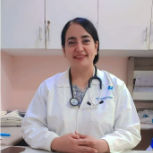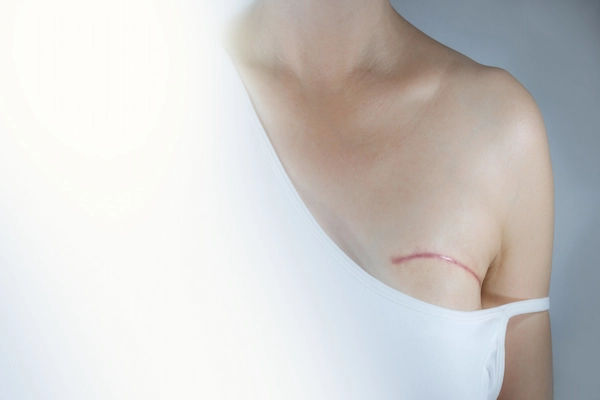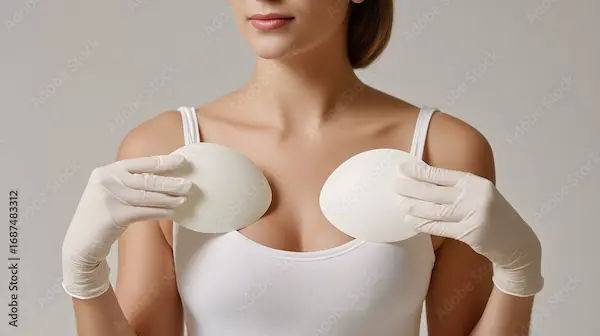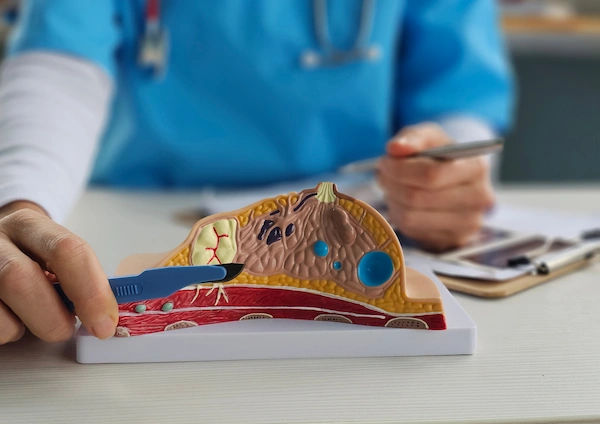Best Lifestyle Practices Keep Breasts Healthy
Explore the best lifestyle practices to maintain healthy breasts, including diet, exercise, self-exams, and routine screenings. Learn how daily habits can support breast health and reduce the risk of common breast conditions.


When we think about breast health, our minds often jump directly to mammograms and clinical screenings. While these are undeniably crucial, the foundation of lifelong breast wellness is built daily through the choices we make. Your lifestyle is a powerful tool you can use to support your body's natural defenses and promote overall well-being. This guide delves into the best lifestyle practices that go beyond the doctor's office, empowering you with actionable steps for optimal breast health. We'll explore how nutrition, physical activity, stress management, and mindful habits work in synergy to create a resilient and healthy body. Whether you're looking to proactively reduce risk factors or simply embrace a more vibrant life, these evidence-based strategies are your roadmap to taking control of your health journey starting today.
Foundations of Breast Wellness
Breast health is a integral part of a woman's overall health. It's about proactive care, not just reactive screening. While genetics play a role, research increasingly shows that lifestyle factors have a significant impact on breast tissue health and disease risk. The American Institute for Cancer Research estimates that about one-third of all common cancers in the U.S. could be prevented through healthy eating, physical activity, and maintaining a healthy weight. This means your daily habits are a form of powerful, preventative medicine.
Understanding the Link Between Lifestyle and Breast Tissue
- Many lifestyle choices affect hormone levels, particularly estrogen, which can influence breast cancer risk. For example, fat tissue produces estrogen, so maintaining a healthy weight helps regulate hormone levels. Similarly, alcohol consumption can increase estrogen levels and damage DNA. Conversely, physical activity can help lower estrogen levels and boost the immune system. A diet rich in fiber can help the body excrete excess estrogen. It’s a complex, interconnected system where your choices directly signal your body towards health or disease.
Nutritional Choices for Optimal Breast Health
What you put on your plate is one of the most direct ways you can support your body. A diet to prevent breast disease is not about one "magic" food but about a consistent pattern of eating nutrient-dense, whole foods.
1. Power Up with Plant-Based Foods
Fill most of your plate with a rainbow of fruits and vegetables. They are packed with vitamins, minerals, and—most importantly—antioxidants and phytochemicals that protect cells from damage.
- Cruciferous Vegetables: Your Cellular Protectors: Broccoli, cauliflower, kale, and Brussels sprouts contain a compound called sulforaphane, which has been shown in studies to have potent anti-cancer properties by helping to deactivate certain carcinogens.
- The Berry Bonus: Antioxidants for Defense: Berries like blueberries, strawberries, and raspberries are loaded with antioxidants like flavonoids and anthocyanins. These compounds combat oxidative stress, a key player in cellular damage and aging.
2. Choosing Healthy Fats Wisely
- Not all fats are created equal. Focus on anti-inflammatory fats like those found in olive oil, avocados, nuts, and fatty fish (salmon, mackerel). The omega-3 fatty acids in fish are particularly beneficial for reducing inflammation throughout the body.
3. Foods to Limit or Avoid
- Processed meats, refined carbohydrates (white bread, sugar), and fried foods can promote inflammation and weight gain. Reducing these supports overall hormonal balance and metabolic health.
The Vital Role of Physical Activity
Regular exercise is a non-negotiable pillar of health. It’s one of the most effective healthy habits for hormonal balance and metabolic function.
How Exercise Influences Hormone Levels
- Physical activity helps regulate estrogen and insulin levels. High levels of insulin have been linked to an increased risk of breast cancer, and exercise improves the body's sensitivity to insulin. Furthermore, women who are physically active for 4-7 hours per week have a lower risk of breast cancer than those who are sedentary.
Consult Top Specialists
Finding Your Rhythm: Recommended Exercise Types
Aim for a mix:
- Aerobic Exercise: 150 minutes of moderate (brisk walking, cycling) or 75 minutes of vigorous (running, swimming) activity per week. This helps manage weight and improves cardiovascular health.
Strength Training: At least two days per week. Building muscle boosts metabolism, which helps with weight management.
Managing Weight and Body Composition
- Maintaining a healthy weight is one of the most important things you can do for your health. After menopause, fat tissue becomes a primary source of estrogen. More fat tissue means higher estrogen levels, which can increase the risk of breast cancer. Women who gain weight in adulthood have a higher risk than those who maintain a stable weight.
The Impact of Alcohol and Tobacco
Even moderate alcohol consumption is consistently linked to an increased risk of breast cancer. Alcohol can increase levels of estrogen and other hormones associated with hormone-receptor-positive breast cancer. It also may damage DNA in cells. The general recommendation is to limit alcohol to no more than one drink per day, if consumed at all. Similarly, smoking is a well-established risk factor for many cancers, as it introduces numerous carcinogens into the body.
Stress, Sleep, and Mental Wellbeing
The mind-body connection is profound. Chronic stress and poor sleep can undermine even the best diet and exercise plan.
- Cortisol and Your Body: When you're constantly stressed, your body produces high levels of the hormone cortisol. Chronically elevated cortisol can lead to inflammation, weight gain, and a weakened immune system—all factors that can create an environment conducive to disease progression.
- Prioritising Sleep for Cellular Repair: During deep sleep, your body repairs cells and regulates key hormones, including melatonin, which has its own antioxidant properties. Aim for 7-9 hours of quality sleep per night. Establishing a regular sleep schedule and creating a restful environment are key best lifestyle practices.
The Importance of Self-Exams and Clinical Screenings
Lifestyle is your first line of defense, but partnership with healthcare professionals is essential.
- How to Perform a Breast Self-Examination: While no longer recommended as a sole screening tool, knowing how your breasts normally look and feel helps you notice any changes—like a new lump, skin dimpling, nipple discharge, or redness. Perform them monthly, a few days after your period ends. If you notice any persistent changes, consult a doctor online with Apollo24|7 for further evaluation.
- When to Schedule a Mammogram: Follow the guidelines recommended by your doctor based on your personal and family history. For women of average risk, many organizations recommend starting annual mammograms at age 40 or 45. These screenings can detect cancers early, when they are most treatable. Apollo24|7 offers convenient home collection for tests like vitamin D (low levels of which are linked to higher risk), making it easier to stay on top of your health metrics.
Conclusion
Caring for your breast health is a lifelong journey of conscious, positive choices. It's not about perfection but about consistent progress in building a lifestyle that serves your body's needs. By embracing a diet rich in plant-based foods, staying physically active, managing stress, maintaining a healthy weight, and avoiding harmful substances, you actively participate in your own well-being. These best lifestyle practices are your most powerful allies. Remember, these steps work synergistically with professional medical care. Stay vigilant with self-exams and recommended screenings, as early detection saves lives. Start by integrating one or two of these tips into your routine this week, and build from there. Your future self will thank you for the investment you make in your health today.
Consult Top Specialists
Consult Top Specialists

Dr Jaya Kumar Agarwal
Obstetrician and Gynaecologist
25 Years • MBBS , DGO , DNB (obstetric and gynecology) DGE diploma in Gyne endoscopy (Germany )
Delhi
Apollo Hospitals Indraprastha, Delhi

Dr. Vidya Konduri
Obstetrician and Gynaecologist
13 Years • MS
Chinagadila
Apollo Hospitals Health City Unit, Chinagadila
(50+ Patients)

Dr. Harmeet Malhotra
Obstetrician and Gynaecologist
44 Years • MBBS, MD, DGO, FICOG
Delhi
Apollo Hospitals Indraprastha, Delhi
(25+ Patients)

Dr. Sushma Prasad Sinha
Obstetrician and Gynaecologist
35 Years • MBBS, MD, MRCOG., FRCOG., FICOG, FIMSA
Delhi
Apollo Hospitals Indraprastha, Delhi
(50+ Patients)

Dr. Surpreet Kaur Sandhu
Obstetrician and Gynaecologist
20 Years • MBBS MS (OBS Gyn). Fellowship in Minimally Invasive Gynecology Surgery & Fellowship in Advanced Infertility Training (FOGSI)
Delhi
Apollo Hospitals Indraprastha, Delhi
(200+ Patients)
Consult Top Specialists

Dr Jaya Kumar Agarwal
Obstetrician and Gynaecologist
25 Years • MBBS , DGO , DNB (obstetric and gynecology) DGE diploma in Gyne endoscopy (Germany )
Delhi
Apollo Hospitals Indraprastha, Delhi

Dr. Vidya Konduri
Obstetrician and Gynaecologist
13 Years • MS
Chinagadila
Apollo Hospitals Health City Unit, Chinagadila
(50+ Patients)

Dr. Harmeet Malhotra
Obstetrician and Gynaecologist
44 Years • MBBS, MD, DGO, FICOG
Delhi
Apollo Hospitals Indraprastha, Delhi
(25+ Patients)

Dr. Sushma Prasad Sinha
Obstetrician and Gynaecologist
35 Years • MBBS, MD, MRCOG., FRCOG., FICOG, FIMSA
Delhi
Apollo Hospitals Indraprastha, Delhi
(50+ Patients)

Dr. Surpreet Kaur Sandhu
Obstetrician and Gynaecologist
20 Years • MBBS MS (OBS Gyn). Fellowship in Minimally Invasive Gynecology Surgery & Fellowship in Advanced Infertility Training (FOGSI)
Delhi
Apollo Hospitals Indraprastha, Delhi
(200+ Patients)
More articles from Breast Problems
Frequently Asked Questions
What are the best foods to eat for breast health?
Focus on a plant-forward diet. Cruciferous vegetables (broccoli, kale), berries, fatty fish rich in omega-3s, flaxseeds, and walnuts are all excellent choices. These foods provide antioxidants, fiber, and healthy fats that support cellular health.
How does exercise reduce breast cancer risk?
Exercise helps by regulating hormone levels (like estrogen and insulin), reducing inflammation, helping with weight management, and boosting the immune system. Aim for a mix of cardio and strength training for maximum benefit.
I have a family history of breast cancer. Will lifestyle changes still help?
Absolutely. While you cannot change your genetics, adopting a healthy lifestyle can significantly influence your overall risk. It's a powerful way to take control of the factors you can change. It's essential to discuss a personalized screening plan with your doctor.
Are all breast lumps a sign of cancer?
No, the majority of breast lumps are not cancerous. Many are caused by benign (non-cancerous) conditions like cysts or fibroadenomas. However, any new, persistent, or changing lump should be evaluated by a healthcare professional to rule out any serious issues.
How often should I get a clinical breast exam?
The frequency can depend on your age and risk factors. Generally, it's a good part of a regular well-woman exam. Your doctor can advise on the best schedule for you. For any concerning symptoms between visits, you can quickly consult a doctor online with Apollo24|7.



_1.webp)
